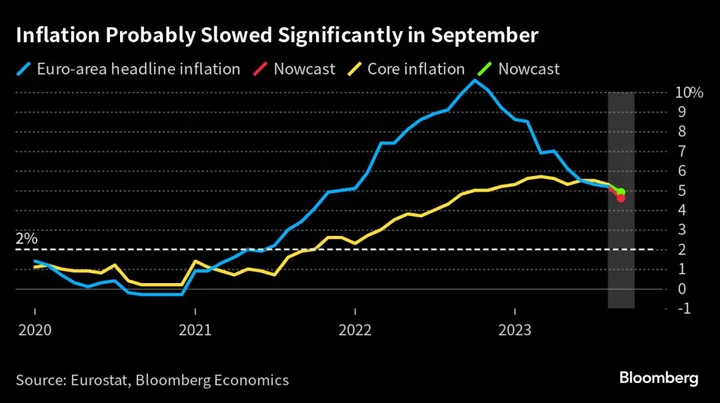
Lagarde Repeats ECB Rates to Stay Restrictive as Long as Needed
European Central Bank President Christine Lagarde reiterated that borrowing costs will remain elevated for as long as needed
1970-01-01 08:00
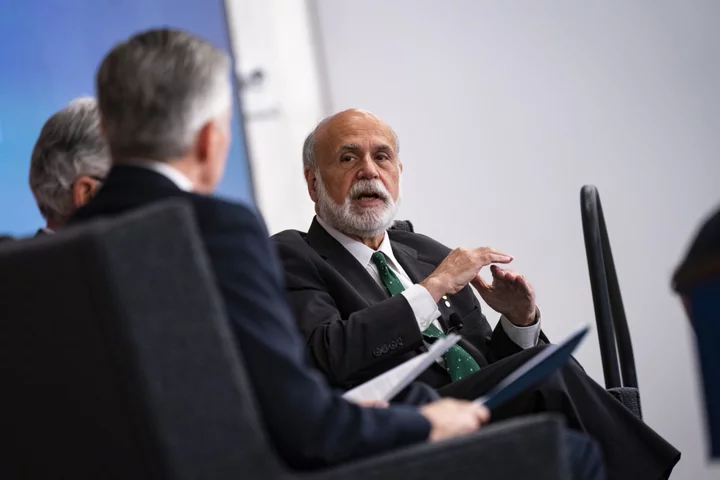
Bernanke Review at BOE to Probe Use of Market Rates in Forecasts
Ben Bernanke’s review into the Bank of England’s forecasting process will look into whether the market path for
1970-01-01 08:00

Canadian parliament accidentally honours Nazi - with Zelensky and Trudeau applauding
Canada’s House of Commons gave a rousing standing ovation to a Ukrainian veteran who fought in the Second World War – unaware he had served in a Nazi SS unit. Yaroslav Hunka, 98, was sitting in the gallery when he was described as a “Ukrainian hero” and a “Canadian hero” to applause from prime minister Justin Trudeau and president Volodymyr Zelensky. However, leaders were left red face when house speaker Anthony Rota subsequently apologised after it emerged that Hunka served in the 14th Waffen-SS Grenadier Division, a voluntary unit made up mostly of ethnic Ukrainians under Nazi command. In a statement, Mr Rota said that on 22 September “in my remarks following the address of the president of Ukraine, I recognised an individual in the gallery. “I have subsequently become aware of more information which causes me to regret my decision to do so.” Mr Rota said that “no one, including fellow parliamentarians and the Ukraine delegation, was aware of my intention or of my remarks before I delivered them. This initiative was entirely my own, the individual in question being from my riding [district] and having been brought to my attention.” “I particularly want to extend my deepest apologies to Jewish communities in Canada and around the world. I accept full responsibility for my actions,” the speaker said. The Canadian Jewish group CIJA said it was “deeply troubled” that a Nazi veteran had been celebrated, and said “proper vetting is imperative to ensure such an unacceptable incident does not occur again”. The incident came shortly after Mr Zelensky delivered a passionate speech to the Canadian parliament to bolster support from his Western allies. Mr Rota then hailed Mr Hunka as “a Ukrainian Canadian war veteran from the Second World War who fought for Ukrainian independence against the Russians” and “a Ukrainian hero and a Canadian hero.” Following the address, Mr Zelensky, who is Jewish and lost family members during the Holocaust, raised his fist in acknowledgement as the veteran saluted. Mr Hunka’s Nazi unit are accused of killing Polish and Jewish civilians, and were visited by SS leader Heinrich Himmler in 1944 who said his men would be “eager” to “liquidate the Poles”. The Friends of Simon Wiesenthal Center said that Mr Rota's remarks ignore “the horrific fact that Hunka served in the 14th Waffen Grenadier Division of the SS, a Nazi military unit whose crimes against humanity during the Holocaust are well-documented.” Since his invasion in February 2022, Russian president Vladimir Putin has repeatedly made unsubstantiatec alims that Ukraine of ‘harbours neo-Nazis’. Read More Putin gives defence chief one month deadline to stop Ukrainian counteroffensive in its tracks Russian airstrikes kill 2 and wound 3 in southern Ukraine as war enters 20th month Russian foreign minister lambastes the West but barely mentions Ukraine in UN speech Trudeau and Zelensky give Ukrainian Nazi war veteran standing ovation in parliament We have a responsibility to defend our citizens, says Canada’s defence minister Leader of Canada's House of Commons apologizes for honoring man who fought for Nazis
1970-01-01 08:00
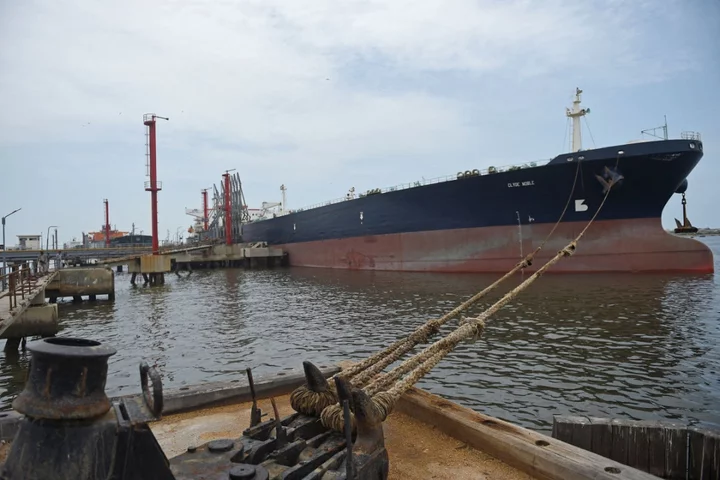
Russian oil supplies continue to spike despite G7 price cap sanctions, data shows
Russian crude oil supply surged 50 per cent this spring despite sanctions imposed by the G7 countries in the backdrop of continuing war in Ukraine, data from commodities tracker and analytics company Kpler showed. An analysis of shipping and insurance records from August showed almost three-quarters of all seaborne Russian crude flows travelled without any western insurance in August, reported the Financial Times. The move was a lever enacted by the G7 nations, the European Union and Australia which imposed a $60-a-barrel price cap last December as the coalition looked to restrict Russia’s ability to finance its invasion of Ukraine. The significant surge confirms Russia’s ability to dodge the cap imposed by Western nations and continue to sell more of its oil at prices competing with international market rates. Russia’s oil revenues are, however, likely to go up due to constant increases in crude prices and a reduction in the discount on its own oil, estimates by the Kyiv School of Economics showed. Russia cut its seaborne diesel and gasoil exports by nearly 30 per cent to about 1.7 million metric tons in the first 20 days of September from the same time in August. Russia’s temporary ban on exports of gasoline and diesel to most countries, announced last week, was expected to further tighten supplies. In April this year, Russian crude oil exports reached back above to levels seen before Vladimir Putin’s Ukraine invasion, despite the ratcheting up of Western sanctions. India and China accounted for 90 per cent of Russia’s seaborne crude oil exports, according to figures by Kpler. The Asian giants are each buying an average of 1.5 million barrels per day (bpd), absorbing the shortfall in exports to European nations that previously accounted for two-thirds of Russian crude. But in August, India’s import of Russian oil dipped to a seven-month low after steady purchase during the course of the war, amid lower discounts for Moscow’s grades and planned maintenance outages at some plants. Since Russia’s full scale war, India had steadily increased its purchases of discounted Russian oil. Indian imports of Russian oil hit a record high in October, with the country becoming India’s top oil supplier in terms of bpd. Despite Western sanctions designed to stop funds reaching Mr Putin’s war chest following his Ukraine invasion, Russia’s crude oil exports have actually risen from 3.35 million bpd in 2022 to 3.5 million bpd in the first quarter of 2023, Kpler said. After India and China, the two largest buyers of Russian crude are now Turkey and Bulgaria. Read More ‘Panic’ grips Putin’s military and milbloggers over Ukraine’s advances on battlefield Ukraine-Russia war – live: ‘Panic’ among Putin’s troops as they ‘face threat of encirclement’ in Verbove Russia strikes Odesa, damaging port, grain infrastructure and abandoned hotel Oil prices have risen. That's making gas more expensive for US drivers and helping Russia's war France's Macron to unveil latest plan for meeting climate-related commitments in the coming years
1970-01-01 08:00
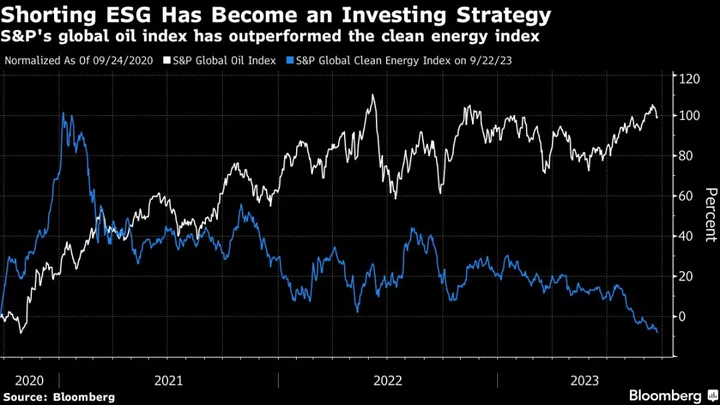
Short Sellers Mount Attack on ESG Stocks Bloated From Green Hype
Hedge fund managers are piling into short positions in ESG stocks as they hunt for bogus green claims
1970-01-01 08:00
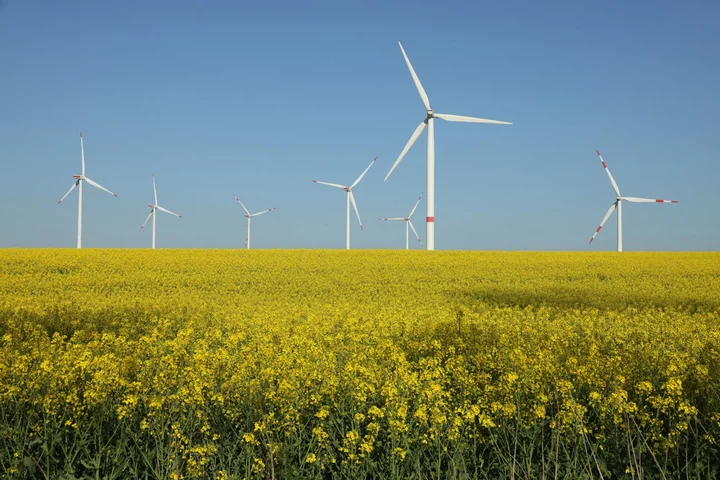
Wind Power Package for Europe to be Presented in October
The European Union is planning to unveil measures to help its ailing wind sector next month, after supply-chain
1970-01-01 08:00
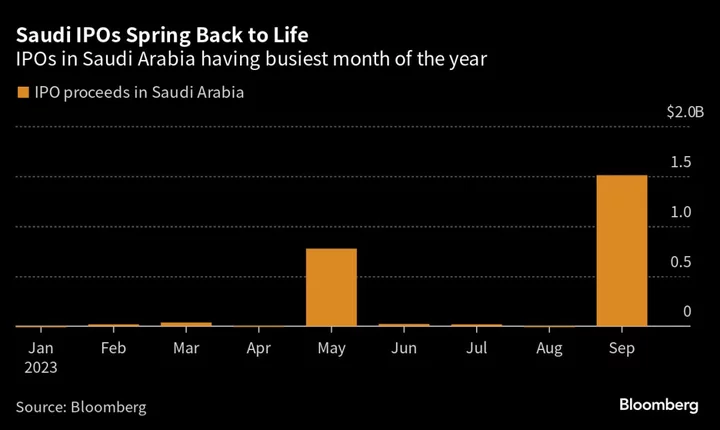
Saudi Cargo Firm SAL’s $678 Million IPO Sells Out in Hours
Cargo firm SAL Saudi Logistics Services Co. received orders for all shares in its Riyadh initial public offering
1970-01-01 08:00
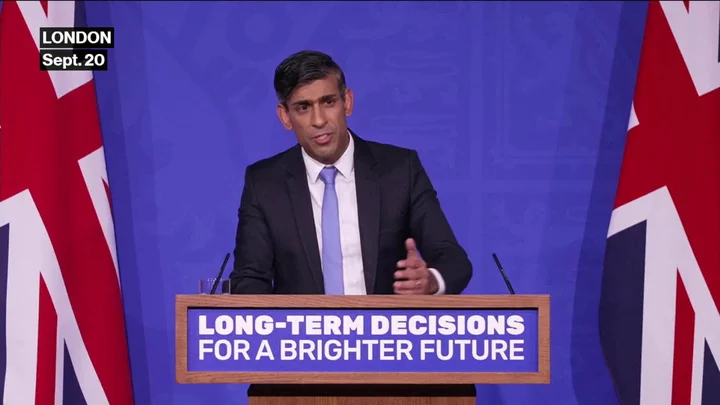
Fund Managers in ‘Complete Shock’ After Sunak’s Green Pivot
Some of the world’s biggest green investors are voicing dismay and bewilderment as they struggle to digest the
1970-01-01 08:00
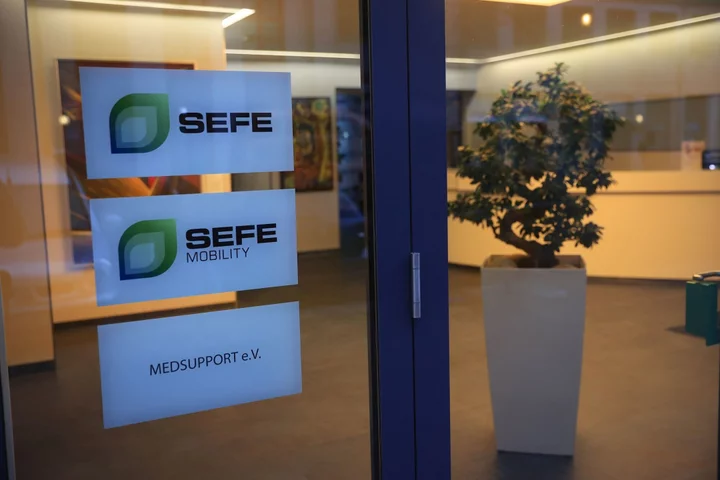
German Firm’s Russia Contract Should Be Cut ASAP, Official Says
A top official in Germany’s economy ministry said a nationalized firm — formerly part of Gazprom PJSC —
1970-01-01 08:00
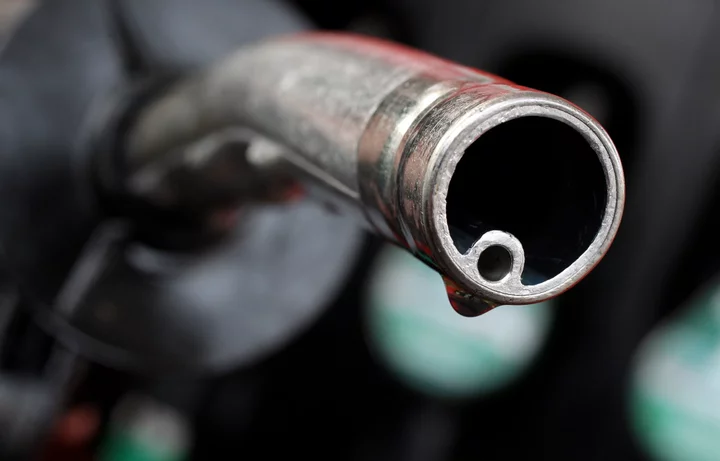
EU Set to Propose Rules to Allow Germany E-Fuels for Cars
Germany has led a monthslong crusade to extend the use of internal combustion engines under the European Union’s
1970-01-01 08:00
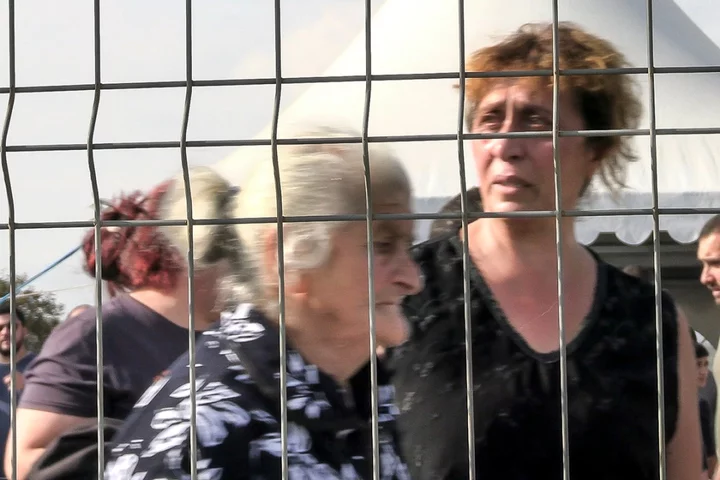
Thousands of Armenians flee Nagorno-Karabakh as Turkish president is set to visit Azerbaijan
Thousands of Armenians streamed out of Nagorno-Karabakh after the Azerbaijani military reclaimed full control of the breakaway region while Turkish President Recep Tayyip Erdogan was set to visit Azerbaijan Monday in a show of support to its ally. The Azerbaijani military routed Armenian forces in a 24-hour blitz last week, forcing the separatist authorities to agree to lay down weapons and start talks on Nagorno-Karabakh's “reintegration” into Azerbaijan after three decades of separatist rule. While Azerbaijan pledged to respect the rights of ethnic Armenians in the region and restore supplies after a 10-month blockade, many local residents feared reprisals and said they were planning to leave for Armenia. The Armenian government said that 4,850 Nagorno-Karabakh residents had fled to Armenia as of midday Monday. “It was a nightmare. There are no words to describe. The village was heavily shelled. Almost no one is left in the village,” said one of the evacuees who spoke to The Associated Press in the Armenian city of Kornidzor and refused to give her name for security reasons. Moscow said that Russian peacekeepers in Nagorno-Karabakh were assisting the evacuation. In an address to the nation Sunday, Armenian Prime Minister Nikol Pashinyan said his government was working with international partners to protect the rights and security of Armenians in Nagorno-Karabakh. “If these efforts do not produce concrete results, the government will welcome our sisters and brothers from Nagorno-Karabakh in the Republic of Armenia with every care,” he said. Demonstrators demanding Pashinyan's resignation continued blocking the Armenian capital's main avenues Monday, engaging in occasional clashes with police that sought to disperse the protests. Nagorno-Karabakh came under the control of ethnic Armenian forces, backed by the Armenian military, in separatist fighting that ended in 1994. During a six-week war in 2020, Azerbaijan took back parts of Nagorno-Karabakh along with surrounding territory that Armenian forces had claimed during the earlier conflict. After a Russia-brokered armistice, a contingent of about 2,000 Russian peacekeepers was sent to the region to monitor it. In December, Azerbaijan imposed a blockade of the only road connecting Nagorno-Karabakh with Armenia, alleging that the Armenian government was using the road for mineral extraction and illicit weapons shipments to the region’s separatist forces. Armenia charged that the closure denied basic food and fuel supplies to Nagorno-Karabakh’s approximately 120,000 people. Azerbaijan rejected the accusation, arguing the region could receive supplies through the Azerbaijani city of Aghdam — a solution long resisted by Nagorno-Karabakh authorities, who called it a strategy for Azerbaijan to gain control of the region. On Sunday, French President Emmanuel Macron pledged support for Armenia and Armenians, saying that France will mobilize food and medical aid for the population of Nagorno-Karabakh, and keep working toward a ‘’sustainable peace’’ in the region. "France is very vigilant about Armenia’s territorial integrity because that is what is at stake,” Macron said in an interview with France-2 and TF1 television, accusing Russia of complicity with Azerbaijan and charging that Turkey threatens Armenia’s borders. Since the start of the Nagorno-Karabakh conflict, Azerbaijan has relied on strong backing of its ally Turkey, which has offered political support and provided it with weapons. Erdogan's office said he will travel to Azerbaijan's Nakhchivan exclave for talks with Azerbaijani President Ilham Aliyev to discuss Turkey-Azerbaijan ties and regional and global issues. Nakhchivan is cut off from the rest of Azerbaijan by Armenian territory but forms a slim border with Turkey. During his one-day trip to the region, Erdogan will also attend the opening of a gas pipeline and a modernized military base, his office added in a statement. ___ Associated Press writers Aida Sultanova in London, Andrew Wilks in Istanbul and Angela Charlton in Paris contributed to this report. Read More Ukraine war’s heaviest fight rages in east - follow live Charity boss speaks out over ‘traumatic’ encounter with royal aide First refugees from Nagorno-Karabakh arrive in Armenia following Azerbaijan's military offensive UNGA Briefing: There's one more day to go after a break — but first, here's what you missed Aid shipments and evacuations as Azerbaijan reasserts control over breakaway province
1970-01-01 08:00
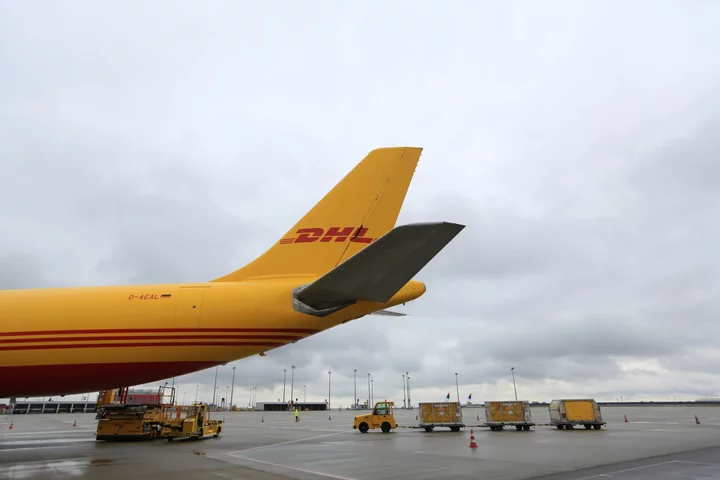
DHL, Sasol Agree to Produce Sustainable Aviation Fuel in Germany
DHL Group, Sasol Ltd. and HH2E AG agreed to collaborate on producing sustainable, hydrogen-based aviation fuels in Germany
1970-01-01 08:00
